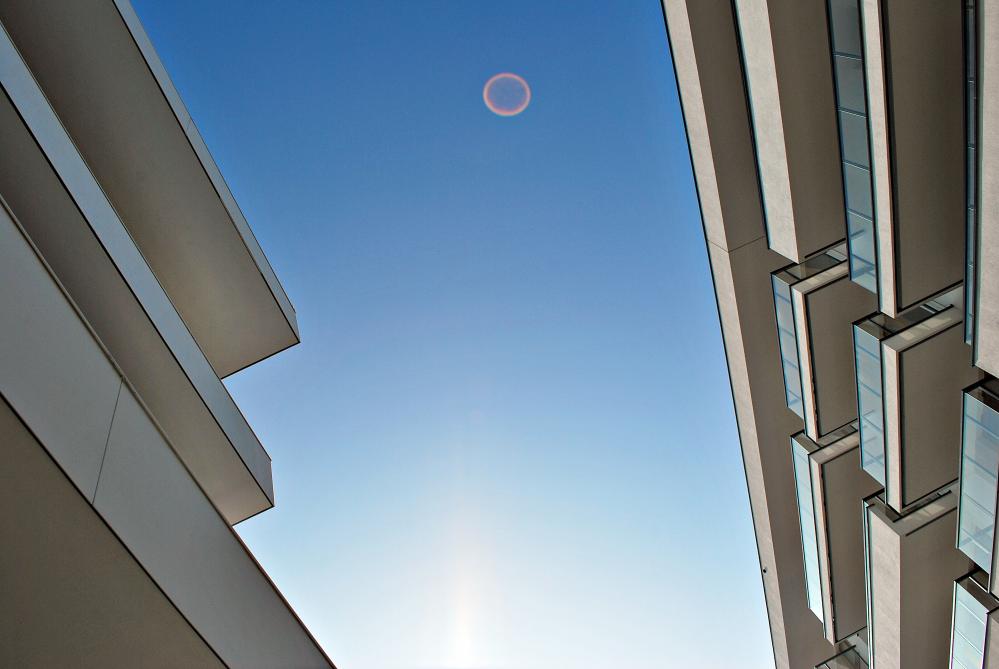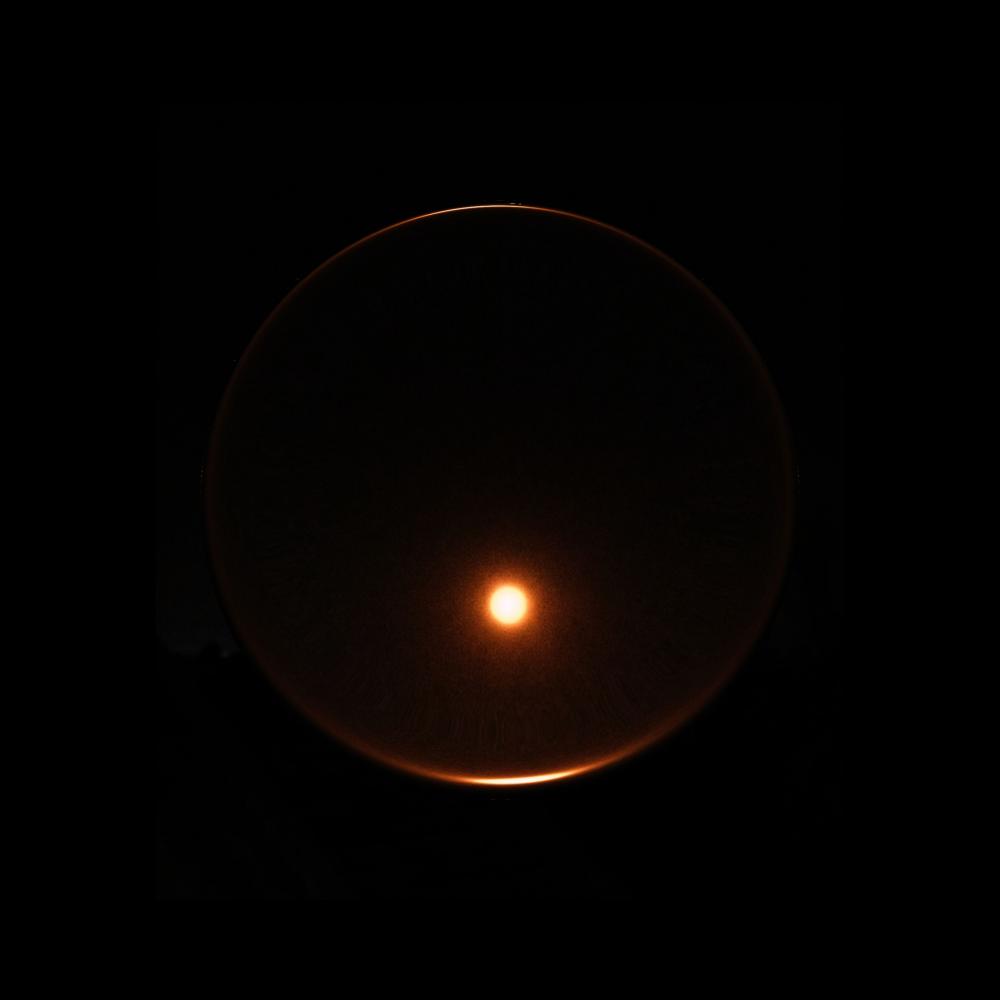
Understanding Eclipse Blindness
When it comes to witnessing the magnificence of a solar eclipse, the allure can be undeniable. Yet, the beauty of this celestial event comes with a risk if not viewed under proper protection. Eclipse blindness, or solar retinopathy, manifests when the retina–a crucial part of the eye sensitive to light–suffers damage from looking directly at the sun. This condition underscores the importance of prioritizing eye safety during such events.
Risks of Fake Eclipse Glasses
Our organization frequently encounters individuals who, unfortunately, fall victim to the allure of counterfeit eclipse glasses. These fake glasses lack the stringent filters required to protect the eyes from the sun’s intense rays, exposing the wearer to potential harm. The false assurance of safety can lead to solar retinopathy due to inadequate protection against ultraviolet (UV) and infrared (IR) radiation.
Signs and Symptoms of Eclipse Blindness
Identifying the symptoms of eclipse blindness early can be crucial for mitigating long-term damage. Common indicators include blurred vision, spots or areas of decreased vision, and changes in color vision. Some might mistakenly dismiss these symptoms as temporary, not realizing the potential for lasting harm.
Choosing the Right Protection
Ensuring the use of correctly rated sunglasses for viewing a solar eclipse is paramount. The American National Standards Institute (ANSI) provides a rating system that identifies glasses capable of offering the necessary eye protection. Adhering to the ISO 12312-2 standard is a safeguard against the risks associated with direct sunlight exposure during an eclipse.
Personal Experiences with Eclipse Blindness
In our journey to support those affected by eclipse blindness, we’ve encountered heart-wrenching stories of individuals who experienced significant vision loss due to incorrect eclipse glasses. These stories serve as powerful reminders of the critical need for proper eye protection during these rare but potentially hazardous events.
Legal Support and Guidance
Finding Justice for Victims
Our affiliation with a dedicated law firm allows us to offer specialized legal support to individuals impacted by the use of dangerous or counterfeit eclipse glasses. Our collective mission seeks to hold accountable those responsible for distributing ineffective eye protection, aiming to secure fair compensation for the victims.
Navigating Your Legal Options
If you suspect you have been affected by using defective glasses, immediate steps include consulting an ophthalmologist and retaining the glasses as evidence. Our team can guide you through the legal process, ensuring you understand your rights and options.
Preventing Future Incidents
-
Always verify the authenticity of eclipse glasses before purchase, ensuring they meet the ISO 12312-2 standard.
-
Educate others about the risks of counterfeit glasses and the importance of protecting one’s vision during a solar eclipse.
-
Report any vendors selling unverified or counterfeit eclipse glasses to prevent future incidents of eclipse blindness.
Eclipse blindness is a preventable condition that underscores the critical importance of eye safety during solar eclipses. By choosing the correct protective eyewear and educating others about the risks of counterfeit glasses, we can all enjoy the wonder of solar eclipses without compromising our vision. For those who have suffered due to fake or defective glasses, know that there is support and legal recourse available to help you navigate the aftermath of such incidents. Together, we can protect our eyesight and ensure that future generations continue to witness these celestial spectacles safely.

How long does eclipse blindness last?
Eclipse blindness, or solar retinopathy, can vary in duration, depending on the extent of retinal damage. Some individuals may experience a recovery within a few days or weeks, as the retina can sometimes heal to a certain degree. However, in cases where the damage is more severe, the effects could be permanent. It’s crucial to understand that the retina doesn’t regenerate like some other tissues, so any damage could potentially lead to long-term changes in vision. If you’ve witnessed an eclipse and are noticing any changes in your vision, it’s essential to consult an ophthalmologist immediately. They can provide a thorough examination and determine the extent of any damage, as well as guide you through possible recovery options.
What is the symptom of eclipse blindness?
The primary symptom of eclipse blindness is a disturbance in vision. This could manifest as blurred vision, a blind spot in the center of your vision, altered color vision, or increased sensitivity to light. Some individuals might also experience eye discomfort or pain, although this is less common. It’s critical to note that these symptoms can appear within hours to days after the exposure to the sun’s rays. If you happen to experience any of these symptoms after viewing a solar eclipse, especially if you suspect you might have used inadequate eye protection, seeking an immediate evaluation from an eye care professional is imperative.
Is eye damage from eclipse permanent?
Whether the damage from eclipse blindness is permanent depends on the duration and intensity of the exposure to the sun’s rays. In less severe cases, individuals might experience a partial or even full recovery. The eye has a remarkable ability to heal, but this capacity has limits, especially when it comes to the delicate tissues of the retina. In more severe cases, where the damage is extensive, the effects can indeed be permanent. There have been instances where individuals have experienced lasting vision impairment as a result of solar retinopathy. This highlights the paramount importance of using proper eye protection when viewing solar eclipses. Early consultation with an eye care professional maximizes the chances of identifying and managing any damage effectively.
How to identify authorized eclipse glasses?
Identifying authorized eclipse glasses is critical to ensuring the safety of your eyes during a solar eclipse. Look for glasses that meet the ISO 12312-2 international safety standard, as these are designed to block out the harmful solar radiation effectively. Genuine eclipse glasses will have the ISO standard labeled clearly on their packaging. Additionally, check for any certifications or endorsements from reputable astronomical or scientific organizations. It’s also wise to purchase these glasses from reputable vendors or authorized retailers. Be wary of glasses that seem unusually cheap or are being sold by questionable sources. Remember, when it comes to protecting your vision, the cost of genuine, safe eclipse glasses is a small price to pay.
Can regular sunglasses protect you during an eclipse?
Regular sunglasses, even those with UV protection, are not sufficient to protect your eyes during a solar eclipse. The sun emits intense visible light and UV radiation that can cause severe eye damage if viewed directly. Eclipse glasses are specially designed with filters that reduce the sun’s rays to safe levels, something that regular sunglasses cannot do. It’s a common misconception that doubling up on regular sunglasses or using smoked glass provides enough protection, but this is not the case. Always ensure you use eclipse glasses that meet the ISO 12312-2 standard to safely view a solar eclipse.
What to do if you experience symptoms of eclipse blindness?
If you start experiencing symptoms of eclipse blindness, such as blurred vision or a blind spot in your vision, it’s critical to seek medical attention immediately. Do not wait to see if the symptoms will go away on their own. Consulting an ophthalmologist as soon as possible is essential. They can assess the extent of the damage and advise on the best course of action. In the meantime, do not strain your eyes – avoid bright lights and give your eyes rest. Remember, early detection and intervention are key to mitigating the potential long-term effects of solar retinopathy.
Role of legal support in cases of eclipse blindness?
Legal support plays a crucial role for victims of eclipse blindness, especially when it’s a result of using fake or inadequate eclipse glasses. If you or a loved one has suffered vision loss or damage due to counterfeit or improperly labeled eclipse glasses, pursuing legal action can be a viable way to seek compensation for medical bills, lost wages, and pain and suffering. Our dedicated law firm specializes in product liability and personal injury cases and works tirelessly to hold responsible parties accountable. We understand the complexities involved and strive to ensure that victims receive the justice and compensation they deserve. Legal support not only helps individuals recover financially but also raises awareness about the importance of eye safety during eclipses, potentially preventing future incidents.
Resources
-
American Optometric Association – Solar Eclipse Eye Safety: The American Optometric Association provides valuable information on solar eclipse eye safety, including how to protect your eyes during this celestial event.
-
Eclipse Glasses – Official Manufacturer Website: This website is the official manufacturer of eclipse glasses that meet the ISO 12312-2 standard, ensuring proper eye protection during solar eclipses.
-
American National Standards Institute (ANSI): Learn more about the ANSI rating system for eclipse glasses, which helps identify glasses that offer the necessary eye protection during a solar eclipse.
-
Prevent Blindness: Prevent Blindness is a national nonprofit organization dedicated to preventing blindness and preserving sight. They offer valuable resources on eye health and safety during events like solar eclipses.
San Antonio TX 78205